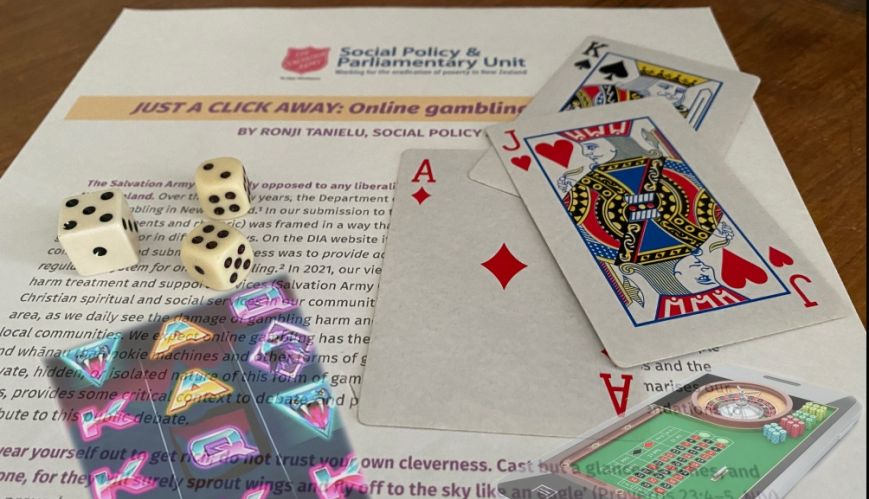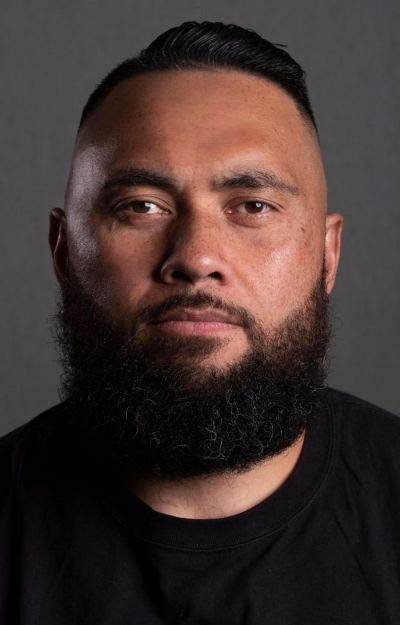Army throws the dice on online gambling policy

Army throws the dice on online gambling policy
6 May 2021
“We daily see the damage of gambling harm and other social issues on people,” says The Salvation Army’s Ronji Tanielu.
The Salvation Army across the world sees daily through its many mission expressions across the globe the effect substance-abuse addiction causes to individuals, families and the wider community.
While society has recognised the addictive nature and health concerns of tobacco smoking, alcohol and illicit drugs and taken steps to combat them through advertising campaigns and taxes, there has been a dramatic increase in more invisible addictions, such as online gambling.
 Ronji Tanielu’s paper on the dangers of online gambling has been published by The Salvation Army in New Zealand.
Ronji Tanielu’s paper on the dangers of online gambling has been published by The Salvation Army in New Zealand.
Ronji Tanielu, a lawyer and principal policy advisor for the Social Policy and Parliamentary Unit with The Salvation Army New Zealand, Fiji Tonga and Samoa Territory (NZTFS Territory), said the rise in popularity and the ease of access to online gambling was “even more dangerous” for people than poker machines and other forms of gambling because access was easier and because of its “private, hidden or isolated nature”.
Ronji recently wrote a short advocacy paper called “Online gambling in Aotearoa: Just a click away?”, which outlines the movement’s opposition and concern for any liberalisation or expansion of online gambling in New Zealand. It has been published by the NZTFS Territory.
He said in the paper that the Army remained opposed to any expansion in the online gambling industry.
It is illegal for overseas operators to provide or advertise online gambling services to New Zealanders yet Ronji notes that, according to the country’s Department of Internal Affairs, which oversees gambling, Kiwis spend more than $NZ300 million a year on more than 3000 offshore online gambling sites. “Local online gambling cannot be disregarded, too,” he said.
The Salvation Army, as a provider of treatment and support services through its rehabilitation centres for drug, alcohol and other addictions across the country and around the world, continues to see the harm to health, lives, families and wider communities where alcohol and gambling were an issue.
“We daily see the damage of gambling harm and other social issues on people (from all walks of life),” Ronji said.
He said the damage online gambling could cause was just “a click away”.
Ronji’s paper calls on the New Zealand government to restrict the amount of advertising about online gambling and to take other key measures to reduce the promotion of online gambling which would be crucial in ensuring individual and community wellbeing.
The paper quotes Proverbs 23:4-5: “Do not wear yourself out to get rich; do not trust your own cleverness. Cast but a glance at riches, and they are gone, for they will surely sprout wings and fly off to the sky like an eagle.”
“This ancient proverb serves as a powerful warning to us all when pursuing money, especially through gambling. The quick financial fix that gambling promises to many often sprouts wings and flies off,” Ronji said.
He said that the odds of winning with online gambling are “even more ominous” than the one in 383,838 chance of a $NZ7 ticket winning the first division Lotto prize.
Along with television screens, newspapers and other print material and radio, social media posts and smartphones are the targets of advertising for online gambling outlets.
Ronji said the government had been looking at major gambling reforms in recent years, especially in the horse and greyhound racing and betting industries. An online gambling (OG) review began in 2018.
“[The] government has given clear signals that they want to reform OG in NZ by developing regulation and moving towards expansion of the sector. [It] is currently working on the next part of the review, which is probably a Bill for Parliament,” he said.
“The policy is in development phase and as mentioned above will likely come in Bill form sometime [this year]. We contend the ideal framing should have been centred on harm minimisation and prevention of expansion.”
Ronji has worked as a lawyer and principal policy advisor for the Army’s NZFTS Social Policy and Parliamentary Unit. He and his wife have also served as missionaries.
To read the paper, log on to https://buff.ly/3gfgN0K
* Aotearoa is the Maori name for New Zealand.
Comments
No comments yet - be the first.